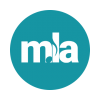Committee on Cataloging: Descriptive Access (CC:DA): Virtual ALA, Summer 2021
Keith Knop, MLA Liaison
The Core Committee: Description and Access held a virtual meeting on July 26, compressed due to scheduling difficulties from three meetings originally planned for earlier in the month. Due to the shortened meeting time, most of the time was spent on highlights from the various written officer and liaison reports.
Chair’s report and CC:DA business:
http://alcts.ala.org/ccdablog/wp-content/uploads/2021/07/CHAIR-2021-2022-01.pdf
LibLearnX, scheduled for January, is the replacement for the now-defunct ALA Midwinter meeting and does not serve the same purposes. It was suggested that CC:DA meet either two weeks before or after.
A task force has been formed to investigate the possible role of CC:DA in RDA Toolkit training.
North American RDA Committee (NARDAC) liaisons’ report:
https://alcts.ala.org/ccdablog/wp-content/uploads/2021/07/NARDAC-2021-02R.pdf
A basic error-reporting form for LC-PCC Policy Statements in the new RDA Toolkit is now available: https://loc.libwizard.com/f/lc-pcc-ps-error-report. This form is intended only for technical issues such as spelling and punctuation errors or broken links; for content-based feedback users should wait until the release of the Metadata Guidance document.
Everett Allgood raised a question about CC:DA vs. NARDAC as an avenue for contacting the RDA Steering Committee, as constituents sometimes hear “contact your NARDAC representative.” Stephen Hearn responded that for ALA the path is generally from CC:DA to NARDAC to the RSC; proposals, etc., should generally come through CC:DA. The exact process is still in formation.
MARC Advisory Council (MAC) liaison’s report:
http://alcts.ala.org/ccdablog/wp-content/uploads/2021/07/MAC-2021-02F.pdf
The majority of recent MARC proposals and discussion papers have had to do in one way or another with aligning MARC with post-3R RDA and the LRM, notably a discussion paper on accommodating representative expression elements in authority records that will return as a proposal.
Program for Cooperative Cataloging (PCC) liaison’s report:
PCC Strategic Directions were updated to incorporate a new item, incorporation of diversity, equity, and inclusion (DEI) principles in all parts of PCC operations. The updated text is posted to the PCC website: https://www.loc.gov/aba/pcc/about/PCC-Strategic-Directions-2018-2022.pdf.
The PCC Standing Committee on Training has released a series of training modules for the Sinopia linked data editor used in the LD4P project, which are available via the Catalogers Learning Workshop: https://www.loc.gov/catworkshop/Sinopia-Training/index.html
Library of Congress report:
https://alcts.ala.org/ccdablog/wp-content/uploads/2021/07/LOC-2021-02.pdf
The proposed changes to the policy on conventional collective titles for incomplete compilations of literary and artistic works by one creator are now official. The changed policy does not cover works prior to 1501, nor does it cover complete or incomplete compilations of musical works. As the original RDA Toolkit cannot be updated, a revised policy statement for RDA 6.2.2.10.3 is available on the ABA website: https://www.loc.gov/aba/rda/pdf/interim-policy-update-2-2021.pdf
The manual for LCGFT is now official. The GFTM is available on the ABA website: https://www.loc.gov/aba/publications/FreeLCGFT/freelcgft.html.
A new BIBFRAME editor was released to LC staff in June. LC will transition to production BIBFRAME cataloging in 2021, though LC records will continue to be released in MARC format via a BIBFRAME-to-MARC conversion tool.
Melanie Polutta reported that the Metadata Guidance documents intended to support LC-PCC PS in the Toolkit are being written now with an anticipated release in October. They hope to be able to link directly from a PS in the Toolkit to the relevant guidance document but there are tech questions still to answer. Policy statements for the Community Resources area in the Toolkit are still in development.
